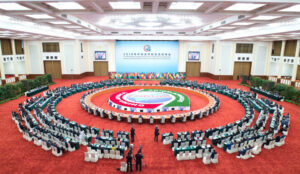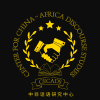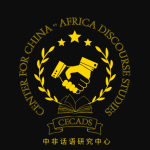Author: Yusuf Opeyemi FADAIRO
In an era of rapidly shifting global dynamics, the Forum for Africa-China Cooperation (FOCAC) offers a vital conduit for enhancing the partnership between the African continent and China. This bi-annual gathering serves as a dialogue platform and a strategic opportunity for African nations to negotiate terms that bolster their economic and developmental agendas. With the 2024 FOCAC set to be a presidential summit hosted in China, the stakes are high for African leaders to craft and execute a strategy that secures tangible benefits for their countries. This analysis explores how African leaders can optimally prepare for the forthcoming summit to ensure outcomes that favor African interests and sustainable growth. FOCAC has evolved through different phases, reflecting the China-Africa ties’ deepening and expanding nature. Initially, this engagement was characterized by accelerated economic and development cooperation. However, recent years have seen a slight pivot, with China subtly recalibrating its approach towards the continent. This shift is partly influenced by structural changes within China, including a gradual transition from state-driven to private sector-led investments in Africa.
CRAFTING AN AFROCENTRIC ENGAGEMENT STRATEGY
Prioritizing African Interests
The essence of an Afrocentric strategy lies in placing African interests, values, and objectives at the core of negotiations with global actors they must deal with. Such a strategy should articulate a clear vision of what Africa seeks to achieve through its partnership with them, ensuring that these objectives align with the continent’s broader developmental goals. Such an Afrocentric strategy will enable African leaders to negotiate from a position of strength, advocating for agreements that contribute to the continent’s sustainable development. China employs an African strategy when dealing with African states. For Africa to have a united front in dealing with China, African countries need to understand the motivations behind Beijing’s interests and formulate strategies that protect their interests while maximizing the benefits of this relationship
Enhancing Strategic Autonomy
In a multipolar world, African countries face the challenge of balancing their international partnerships. This challenge requires a critical foreign policy approach that seeks to diversify economic and strategic ties. Engaging with multiple global partners can help African countries maintain strategic autonomy, leveraging their relationships to achieve the best outcomes for their development objectives.
Leveraging Think Tanks and Expertise
Critical to the preparation for FOCAC is the collaboration between African policymakers and specialized think tanks focused on Africa-China relations. These institutions offer invaluable insights, policy analysis, and strategic advice that can equip African leaders with the appropriate understanding of the complexities of their engagement with China. By tapping into this reservoir of expertise, African countries can formulate informed strategies, identify negotiation priorities, and anticipate potential challenges. China changes fast. A new policy in China can start making waves a few days later, which might pose some issues for other countries that need to engage with China along the lines of the policy. These entities can play a pivotal role in addressing these challenges and maximize the potential at the negotiation table.
STRATEGIC IMPERATIVES FOR THE 2024 SUMMIT
The upcoming FOCAC 2024 summit encapsulates the potential for a new phase in China-Africa relations and captures the strategic imperatives African leaders must consider in preparation for the summit. As FOCAC draws closer, the task of African leaders is about weathering the challenge of seizing new opportunities while addressing emerging complexities within the Sino-African partnership. Strategic preparation, informed by a clear understanding of the evolving landscape, will ensure that Africa continues to benefit from this enduring collaboration.
Adapting to Changes in BRI Financing
In early March this year, the Bank of China refuses to continue investing in Africa for the first time. It is a significant shift for an institution previously deeply engaged in financing infrastructure projects across the continent. The bank cited the high risks associated with the profitability and sustainability of these projects, as well as the political and economic instability in the region, as the reasons for withdrawing from the African investment landscape. This move is part of an ongoing broader economic strategy by China to recalibrate the Belt and Road Initiative (BRI) financing strategies to what has been defined as “small and beautiful” or “smart and beautiful” in the era of Chinese spending in BRI countries. It is moving from significant infrastructure construction financing to smaller or more “quality” infrastructure with measurable developmental impact.
This kind of economic move necessitates a strategic response from African leaders. The upcoming FOCAC offers a platform to discuss the implications of reduced investment financing and how to explore other frontiers of economic collaborations. The FOCAC also presents an opportunity for China to reiterate its commitment to dealing with Africa under the new dispensation.
Securing Beneficial Trade Deals
A key goal for African nations at the upcoming FOCAC should be negotiating free trade agreements with China. Such agreements promise to open up new avenues for African exports, enhance market access, and attract Chinese investment into critical sectors of the African economy. African countries can boost their economic growth and integration into global markets by advocating for reduced trade barriers and equitable trade terms.

Debt management
In some quarters, debts in Africa are majorly regarded as China-related problems. Meanwhile, when one measures the debts to China against the total public debts in highly indebted African countries, we get some low percentages compared to other international private lenders, bilateral creditors or multiple stakeholders, including Western institutions. It is great that the Chinese debt trap narrative is dying out as many African leaders and researchers are beginning to speak against it. Now that there is a decline in the value of local currency rates in Africa, which places a heavy burden on loan repayments, African leaders attending FOCAC need to negotiate for more favourable financing conditions and prioritize projects with clear benefits to the development of the continent.
Collaboration in Digital Transformation
In the post-COVID-19 era, the rate at which digital transformation plays a fundamental role in helping governments adapt to new opportunities and challenges worldwide is noteworthy. Moreover, digital transformation in ICT like social applications, mobile technologies, big data analytics and cloud infrastructure, according to OECD, represented a combined global market of about US$1.2 trillion in 2017 and it is set to witness a double-digit compound annual growth rate (CAGR) over the next few years. To benefit from this development, African leaders joining this year’s FOCAC should make it a point of duty to initiate collaborations with Chinese firms not only for the development of cutting-edge digital technologies in Africa but also to offer knowledge and expertise on its scaling and commercialization on the continent.
Investing in Sustainable Energy
The shift towards new energy infrastructure in China presents a significant opportunity for Africa to address its energy challenges. African leaders should seek partnerships that facilitate investment in renewable energy projects, leveraging Chinese technology and expertise in solar, wind, and hydropower. This focus on sustainable energy can drive Africa’s green energy transition, reduce energy poverty, and foster long-term environmental and economic resilience. It is no news that domestic economic priorities in China usually shape the economic development agenda along the lines of BRI. China’s focus on sustainable and low-carbon solutions encompassing renewable energy, sustainable transportation, clean energy technologies, energy storage systems, and electric vehicle charging infrastructure is now influencing global trends. African leaders participating in the FOCAC should seize the opportunity to align their economic growth with these dynamic sectors.
Conclusion
The 2024 FOCAC summit represents a critical juncture for Africa-China relations, offering the leaders from both sides a chance to redefine their partnership on terms that reflect their priorities and aspirations. By adopting an Afrocentric approach, engaging with expert think tanks, and focusing on strategic goals such as equitable trade agreements, debt management, digital transformation collaboration and sustainable energy investments, African nations can leverage the summit to advance their developmental objectives. As the FOCAC 2024 summit approaches, African leaders are presented with a multifaceted set of opportunities and challenges. By strategically addressing these areas, they can ensure that Africa continues to derive tangible benefits from its partnership with China, fostering a relationship that is mutually beneficial and conducive to the continent’s long-term development and prosperity.





